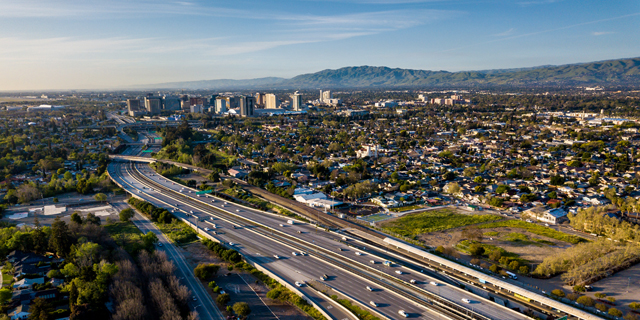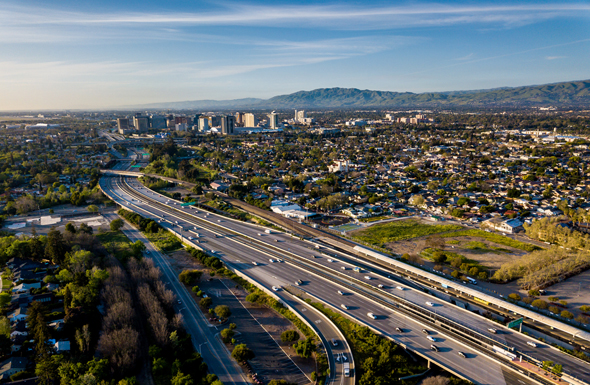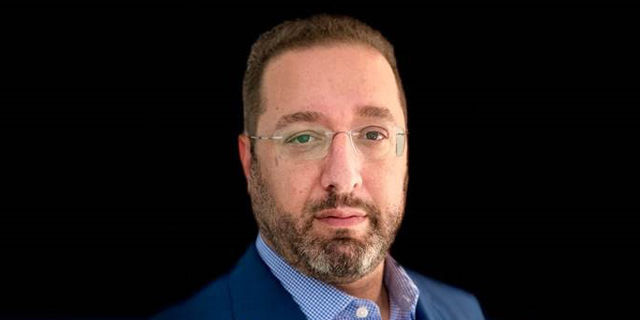
Covid-19 forced the Valley to break out of its bubble
Entrepreneurship is still thriving, but the world’s tech epicenter is adjusting to a reality where geographic location is no longer as important
Oded Hermoni | 11:35, 30.08.20
The smoke that blanketed Silicon Valley for the last week has partially lifted and we can now breathe once again. The tech sector’s 2020 rollercoaster ride received a boost of adernalin courtesy of a wave of fires that threatened the valley from nearly all directions, burning down some of the historic buildings surrounding it. Anyone looking for refuge in Oregon to the north, Santa Cruz to the west, or Los Angeles to the south, quickly discovered that the roads were blocked by walls of fire.
The fire didn’t change much, it only served to augment the sense of helplessness that was already brought about by the Covid-19 pandemic, and the long months of lockdown that saw most business activities and studies move online, offices and campuses left abandoned and a complete change to the daily lives of millions. Like in Israel, here too the list of companies that are crumbling gets longer every day. Some of them are iconic institutions that were part of valley life for decades - like Mayfield in Palo Alto - and some are trendy hotspots like my favorite coffee shop in Los Altos, Red Berry, which recently announced it was closing down.
The malls here, unlike in Israel, are all empty and the main source of human interaction are occasional visits to the supermarket or attempts to maintain social distancing with other hikers on a woodland trail.
The fires, California’s high taxes, the rigid Covid-19 restrictions (which saved many people but also left them looking shaggy with barbershops closed), and the ability to work from home have all led to increased interest in moving to other cities and states. It is still too early to tell what impact the decentralization of the valley will have.
After years in which recruiting talent and raising money was the main occupation of people in the valley, more than 30,000 people were laid off from startups and major companies since March, mostly in the transportation and tourism sectors (Uber, Lyft, Bird). During the past six months, most tech companies stopped recruiting new workers, which when accompanied by the Trump administration’s freezing of work visas and immigration processes, which were the valley’s lifeblood, led to a near-complete standstill in new employment.
Local moving companies have reported over recent months that for the first time their operations have shifted to out of state transports instead of just between cities in the valley. San Francisco, which is a 40-minute drive away from the valley and which in the last decade has itself become a hub for tech and innovation companies that are based on young employees, has also experienced a major blow, with rent prices, which had broken U.S. records, plummeting sharply with many people choosing to leave the city or the state. Similarly to what’s taking place in New York, those who can are seeking out the open spaces and suburban community life, outside the big city.
A major blow hit the valley just last week, when security company Palantir, one of the largest companies in Palo Alto, the capital of the valley, announced it would move its management to Denver, Colorado. The CEO of the company hinted at unbridgeable cultural gaps between the two regions and sparked widespread debate around the valley and its alternatives.
Even before Palantir, it was Tesla, the world’s largest automotive company, whose DNA was formed in the valley, that announced it would move part of its production facilities to other states that are considered friendlier for manufacturing and marketing and less rigid when it comes to taxation, minimum wages and the like.
However, as always, it may be a bit premature to eulogize the valley. Very few places in the U.S. offer the combination of high quality of life, comfortable weather (provided there are no forest fires or earthquakes), good schools, safe communities, and an innovative spirit. The list of alternatives is not that long and while housing prices in San Francisco may have dropped, in the valley itself they haven’t and have even climbed in recent months.
Over the summer, which is usually a very quiet time of year in the valley, the tech giants— Facebook, Tesla, Google, Microsoft and Apple, whose stocks hit all time highs, went back to recruiting new employees and, for the time being, are not going anywhere. Neither are their employees, who were making fortunes even before the stock price surge. All this only strengthens the notion that the valley is a financial and technological bubble relative to the rest of the U.S.
Venture capital funds have also resumed investing after a hiatus of several months, with everyone continuing to look for unicorns, and IPOs and acquisitions have even intensified.
It is clear that Silicon Valley, like the rest of the world, is undergoing a revolution. The fires and Covid-19 are expediting it and shifting the balance of power in new directions. The digital revolution which was long-awaited is happening before our very eyes and making physical location negligible, forcing new and innovative thinking: at the same time, it is making historical roles redundant and accelerating discrepancies between different age and socio-economic groups. The effects are felt in all aspects of life and technology, and I will address several of them later. As the school year begins, for example, we are discovering that veteran teachers, who were considered the best at frontal education are finding it difficult to keep up with the younger and more tech-savvy generation of educators, who are far more successful when it comes to remote learning. Community life is also changing. Reform and Conservative synagogues, which are the core of Jewish community life in the U.S., have shifted online and suddenly find themselves servicing members who joined from out of state because of their preference to a certain rabbi or stream of religion. Jewish community centers have also had to reinvent themselves, serving communities that may not even share the same zip code. Since February, all of our communications with doctors have shifted online and grocery shopping has been replaced by home delivery or in some cases, even home-grown produce. Many people are switching over to auto insurance companies who set premiums according to the mileage driven because the cars aren’t going anywhere. The traditional summer vacations, with the flights and hotels, have been replaced by camping or RVing and like in Israel, our lives here have begun revolving around Zoom. All these changes are creating innovation. The valley can’t stand aside and witness the change without taking part in it. Contrary to many predictions, entrepreneurship hasn’t gone away. I meet entrepreneurs in the valley all the time, people who are thinking about and carrying out changes in accordance to the new reality. One of the best places to witness those changes was during investment firm YCombinator’s recent portfolio introduction event. YCombinator is an incubator with more than 100 participants in each cohort and functions as a seismograph for the valley. Its demo-day this year was for the first time held in an online format enabling people from all over the world to tune in to the event, which was formerly held in the valleys’ tech museum. What the presentation of the 100 companies revealed, was that the valley had quickly adjusted to the decentralization brought about by the pandemic — with many of the companies showcasing solutions to the outbreak and the shift from offline to online life. Another recurrent theme was companies taking ideas that worked in the Silicon Valley and exporting them to other states or other regions of the world. The valley is carrying on its traditional role in innovation but is also adjusting to a bigger world, where engineers, marketers, and salespeople work from home and build their products in a decentralized location, which can be virtually anywhere independent of address or work visa. Oded Hermoni is a managing partner of J-Ventures which invests in tech companies in the Silicon Valley, New York, and Israel.


